The Stuart Highway north from Adelaide to Darwin is around 3000kms, less than the 4000km I had already ridden in the last 12 days, but still a relatively featureless ride for the most part. I have done this trip quite a few times but before heading out of Adelaide I wanted to pop past RAAF Base Edinburgh and have a look at the recently appointed Gate Guard.
As expected the front gate had changed since my first visit in 1982 to undertake recruit training at 1RTU, but what was more obvious was the Lockheed AP-3C Orion, A9-658, parked in a fenced off area nearby.
A9-658’s last flight was back on 21 October 2016 and it had been used as a training aid since then before commencing the decommissioning process in June 2018, and finally being identified as a static aircraft ‘Gate Guard’ for RAAF Base Edinburgh.
This Orion has served with both No. 10 and 11 Squadrons but one note in the history log of 658 since entering service in 1985 was its participation in the aerial search of civilian Malaysia Airlines Flight MH370 from March to April 2014.
During 2021 the aircraft will be officially revealed as part of the Royal Australian Air Force’s Centenary Year celebrations. In the mean time here are some images of the Orion in its final resting place.
So onwards north for about 850km today with a quick diversion off the Stuart Highway at Spud’s servo, to ride into Woomera. The word Woomera aptly refers to the indigenous carved hand spear ‘launcher’ that extends the spear’s range through mechanical advantage.
Woomera (township) has never been the same since it’s hey day as a semi-closed township, supporting the operations of the Woomera Rocket Range during the Anglo-Australia Project in conjunction with the Salisbury Weapons Research Establishment of Adelaide. When that project wound down, the USAF/ADF Joint Defence Communications Facility (Nurrungar) kept the reduced town going until it also wound down in the late 1990’s. The ADF recognised the potential and strategic importance of establishing the RAAF Woomera Range Complex (WRC)which includes the Woomera Test Range (Air Force Test Ranges Squadron), RAAF Base Woomera (20SQN) and the Nurrungar Test Range. The Woomera Test Range is the largest test and evaluation facility in the world covering 127,000 Square Kilometres.
In 1947 the Australian Government contracted an ex-Army surveyor Len Beadell to commence surveying for suitable sites to locate a rocket testing range in mid South Australia, Woomera became that base site. The Long Range Weapons Establishment had also essentially wanted a survey of a down range area that spanned from Woomera, through some of the most remote desert wilderness, almost to Port Headland in north-west W.A. If you get a chance read his books grab a copy – Beat the bush, Back in the Bush etc… some very interesting and most humorous reading of his exploits in relation to the various surveying tasks…including Emu Clay Pan and Maralinga…and his various ‘highways’ throughout central Australia.(Gunbarrel, Connie Sue etc) His very dry humour was often lost on the Australian and British Defence top brass, when on one early meeting, apparently he asked what, where and how he was to begin surveying for.. “oh we can’t possibly tell you that.. its top secret, you don’t have the clearance”. “Oh well, best I get started then”, he replied and excused himself.
At the turn off to town are some indicators of the long history of Woomera. The area has a very interesting history in relations to weapons, tracking, propulsion, warfare, communication systems and more, much of which cannot be made public due to its still classified nature. While primarily a military installation, Woomera has been utilised for non-military operations, WRESAT, Australia’s first satellite was launched in 1967, to as recent as December 2020 when Japan’s Hayabass II probe returned asteroid samples, landing within the Woomera Prohibited Area. The Woomera Range has been recognised as a National Engineering Landmark due to the efforts of many who had broken the existing limits of various engineering sciences.
Within the township are some facilities that recall the historical significance of the range including the History Museum, Heritage Centre and a ‘missile park’. Several aircraft are also on display with the whole display setting currently being refurbished for the RAAF Centenary Celebrations in 2021.
Containers from the RAAF’s Static Display Aircraft Support Section are nearby but little activity on this POET’s day (Friday) afternoon. SDASS are a unit of the The Directorate of Air Force Heritage, who themselves are a unit of History and Heritage Branch – Air Force. The units aim to preserve Air Force history including aircraft but not limited to the various public displays and heritage museums throughout Australia and abroad.
Unfortunately the Woomera History Museum was closed and the display area is cordoned off for public safety while renovation activity takes place, but the various missile artefacts can still be clearly seen.
Just off the road sits Canberra Mk.20, A84-241, an iconic airframe which served with No.2 Sqn in Vietnam as part of USAF 35th Tactical Fighter Wing. 241 had also served with ARDU at Edinburgh, and the tail flash reflects its time there prior to retirement and relocation by road to Woomera with a number of other Canberras – to be used as targets. The short lived Karinga Experimental Cluster Bomb trials developed by the Defence Science and Technology Organisation (DSTO) were designed for delivery by the F-111 initially – it appears 241, by all accounts, mostly survived being a target and was restored to be proudly placed on display. Notably, a Karinga bomb is one of the displays in the area behind the Canberra.
The other aircraft is a two seat version of the Gloster Meteor F.4 – a Meteor T.7+FR.9, A77-701, Weapons Research Establishment, which was also used by ATU. It has been repainted and with the correct serial number since my last visit.
Two seperate areas house the missile displays, from 1000lb general purpose bombs to the Ikara, an Australian ship-launched anti-submarine missile which utilised a torpedo surrounded by a rocket propelled airframe, ingenious at the time.
A GAF Jindivik Mk.3A target drone A92-418 (WRE-418) stands above a portable Rapier Surface to Air Missile battery and 40mm Bofors AA Gun. The Jindivik was a joint venture with England to provide a radio controlled target capable of flying up to 40000ft and was retired in the 1990’s – a number remain on display around Australia.
The second area contains some larger weapons, the partial remains of a PGM-11 Redstone, the first large U.S short-range ballistic missile (SRBM), the Black Knight, a U.K designed single stage ballistic missile developed to test and verify the Blue Streak re-entry vehicle design…one of possibly only 25 constructed. Scattered about are other examples of conventional weapons, high drag and ‘slicks’ and the huge mach 3 Avro Blue Steel nuclear stand off missile, designed for the V series RAF bombers, the Victor and Vulcan.
Just down the street past the Woomera Cinema, is the Heritage Centre (closed today) but a familiar sight outside. A mobile English Electric Thunderbird Missile is hard to miss parked out the front, a legacy of the British influence at the Woomera Rocket Range in times of past. There is one of these missiles in Alice Springs, curiously mounted on a small dozer chassis and painted ‘Thunderbird I”
If you ever drive the Stuart Highway, pull off the road at Spuds and travel the few kilometres to have a good look at Woomera… it will reveal a somewhat surprising history of Australia’s involvement with missile testing and development over the last 70 years, and possibly an interesting future as the ADF re-establishes itself in the Woomera Range Complex.
I could see the end in sight, Darwin was only 2560km away and after swagging it on the side of the road that night, another 1000km saw me in Alice Springs the next day. From Alice it was a day run of 1170km to stay overnight at RAAF Base Tindal, and finally I was home with just the last 330km of riding to reach Darwin the next day.
I can honestly say riding more than 7000km’s is not something I wish to do too often, but the ST1300 didn’t miss a beat and I was very fortunate to break up the ride by catching up with some mates, watching some brilliant airshows, and visiting a number of fantastic aviation museums.
Note to self…’maybe stretch it out over a month next time.’….mmmmmm did someone say Avalon?
Cheers from the Top End…Sid Mitchell


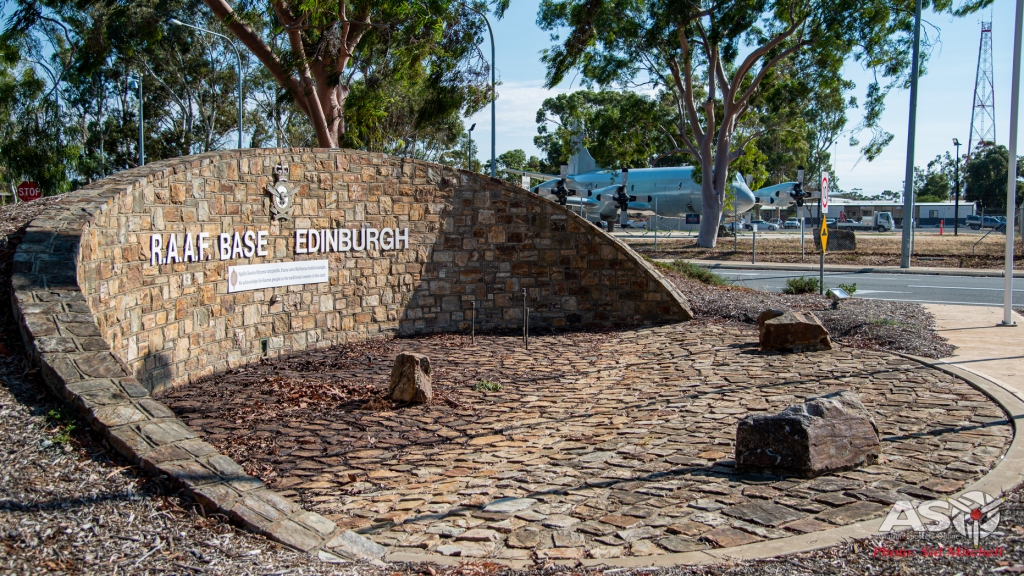
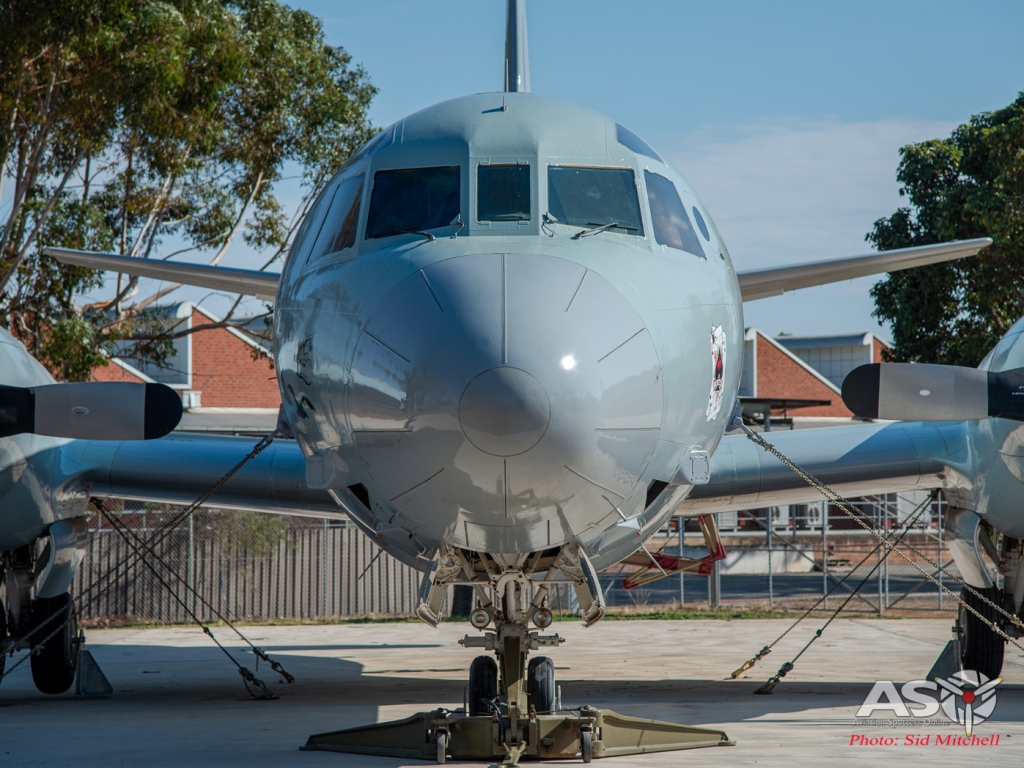
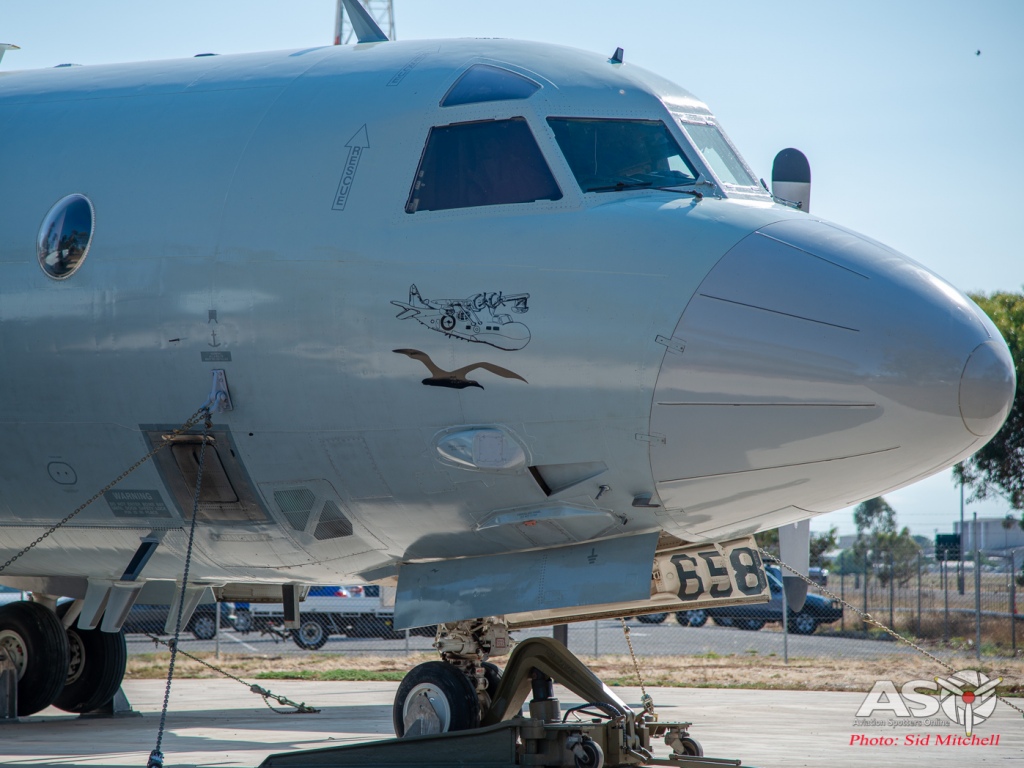
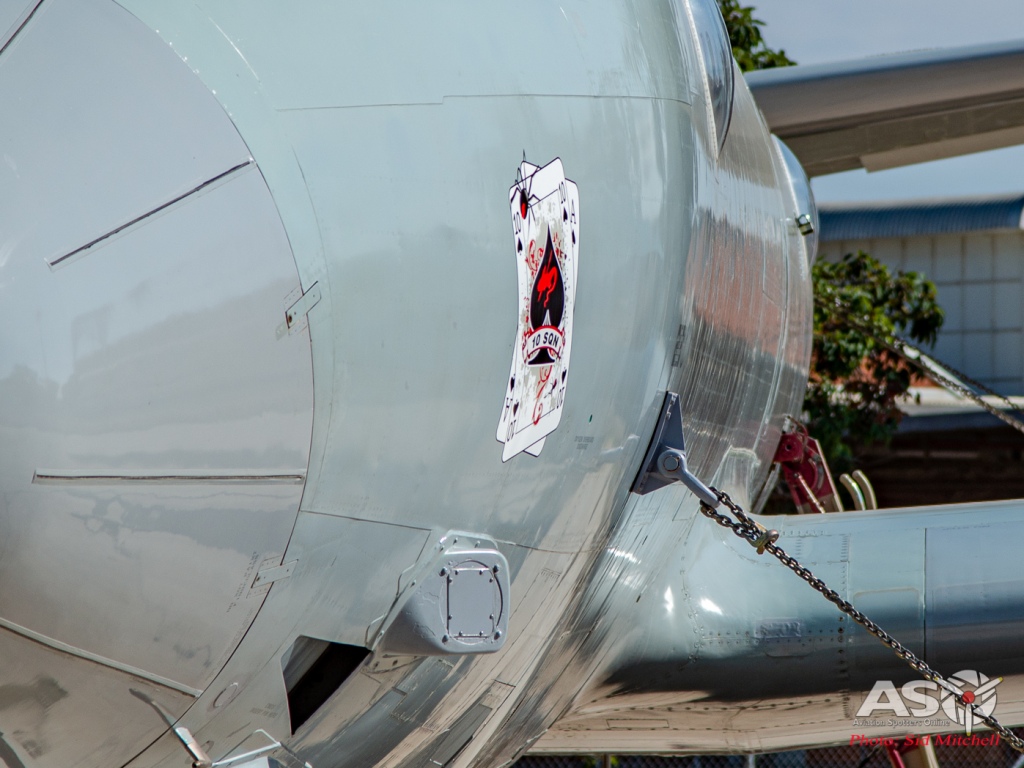
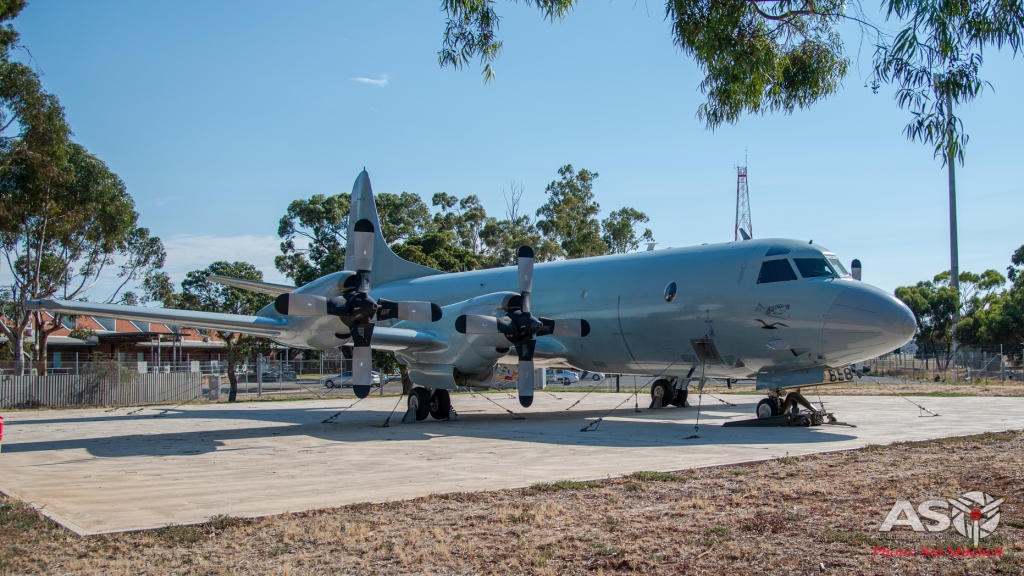
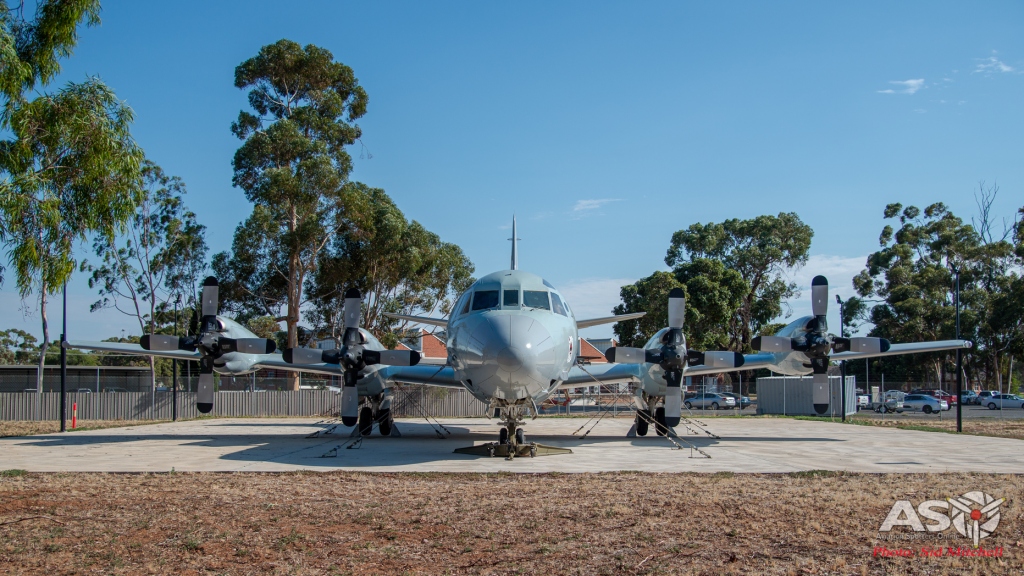
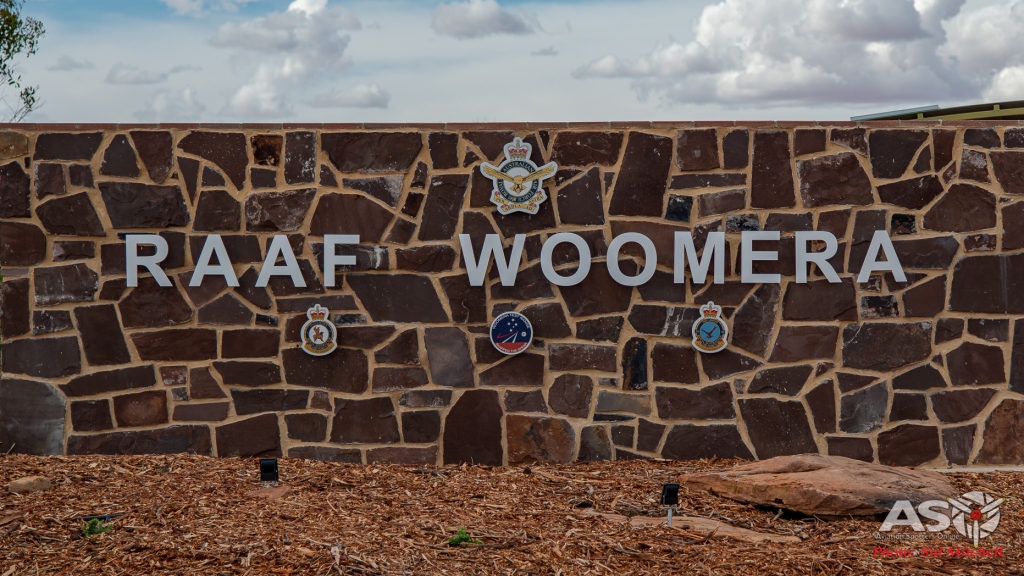
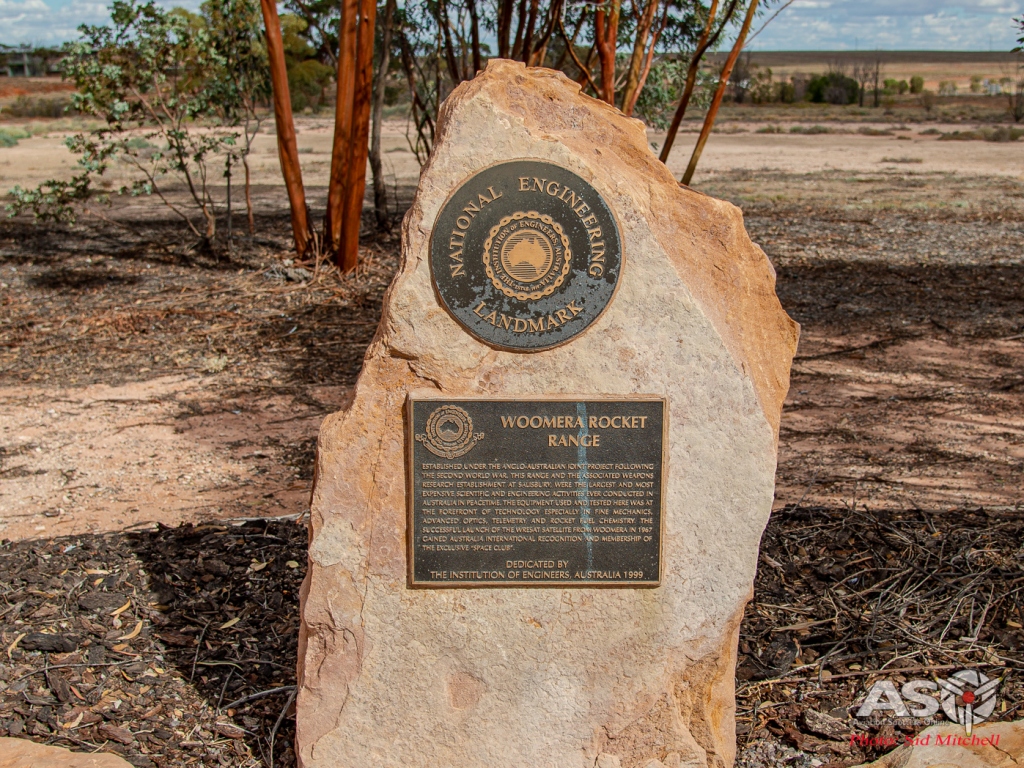
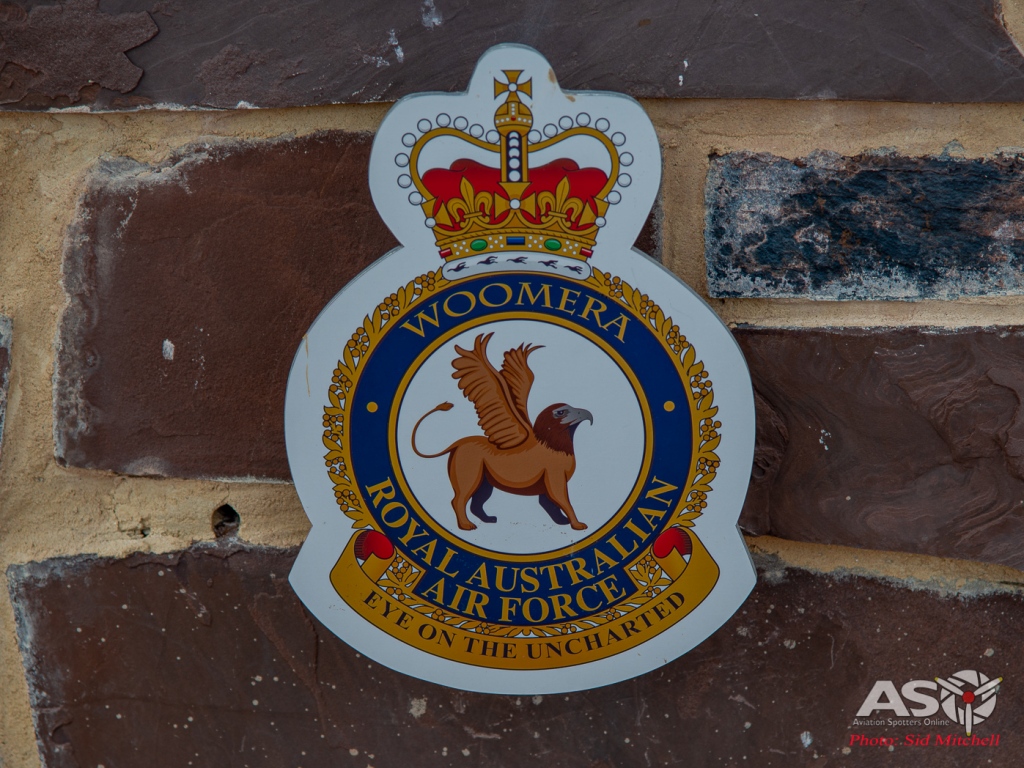
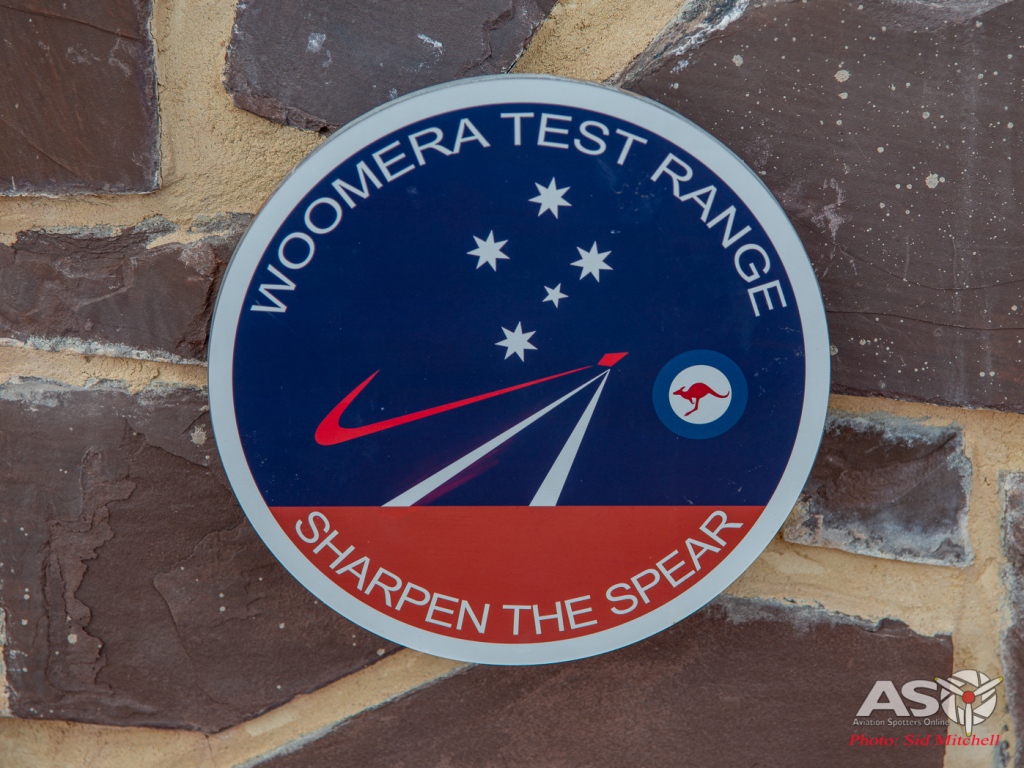
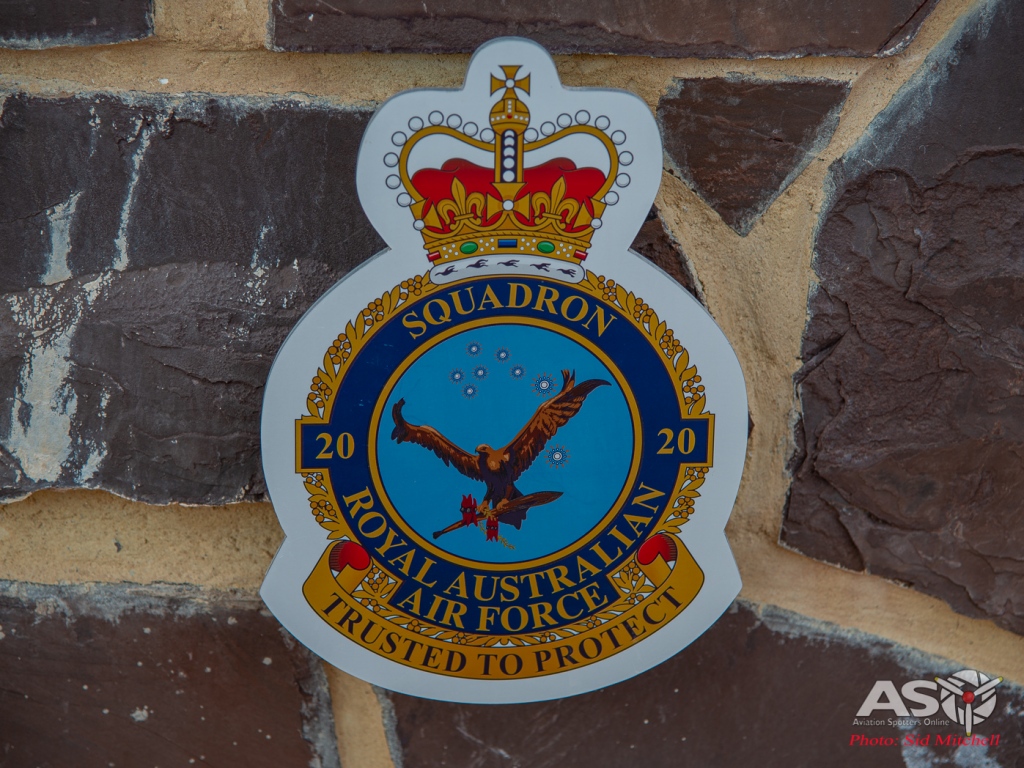
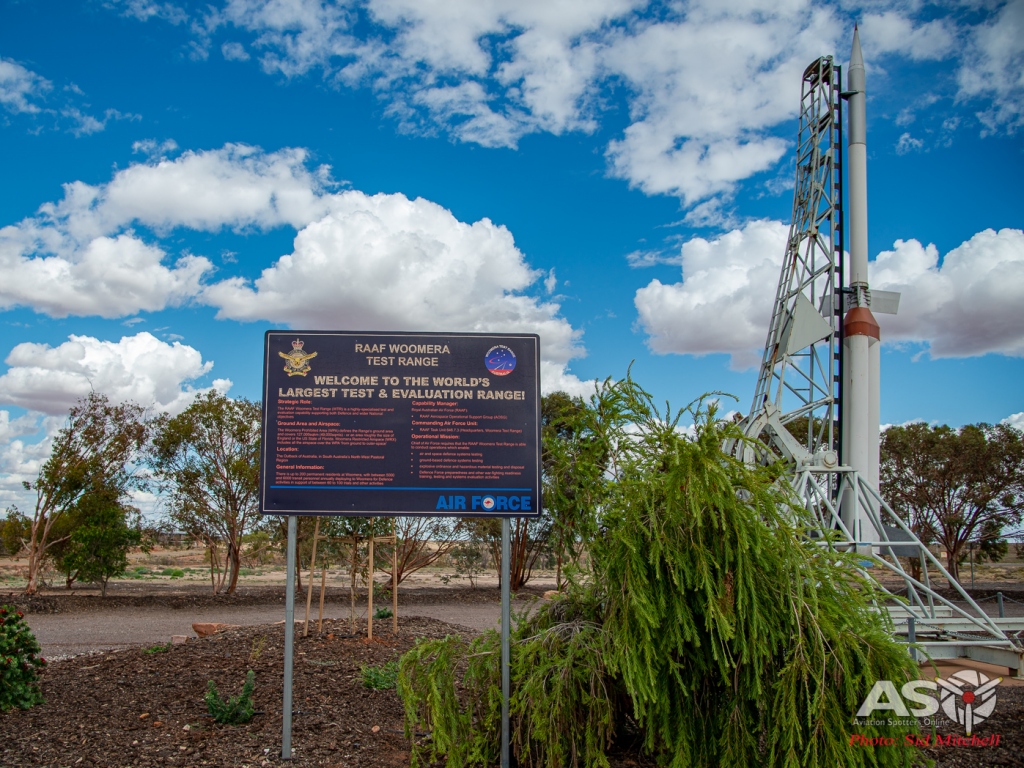
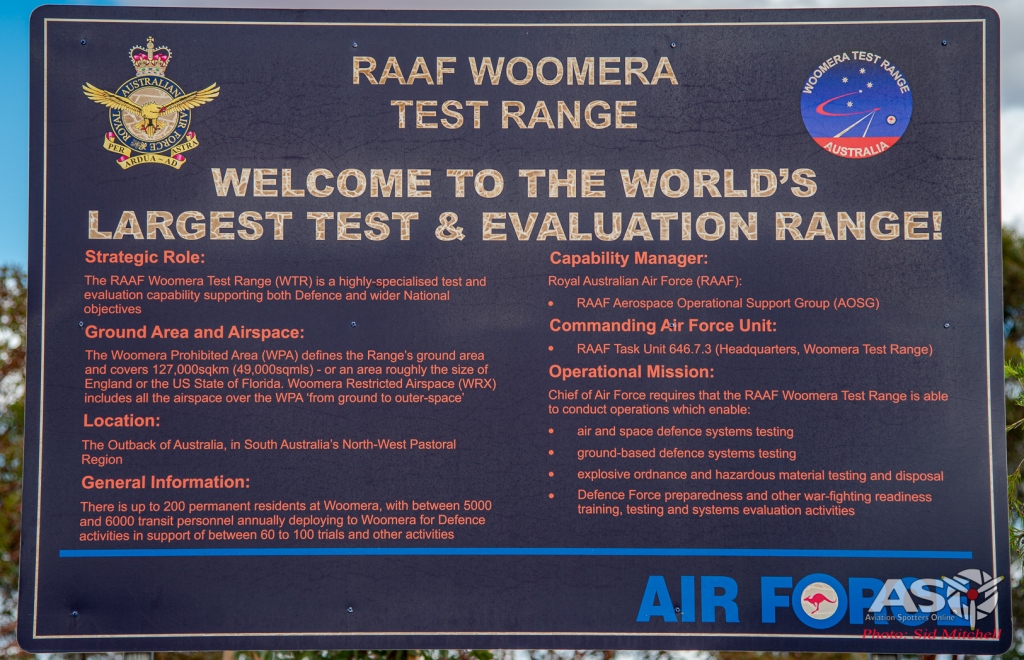
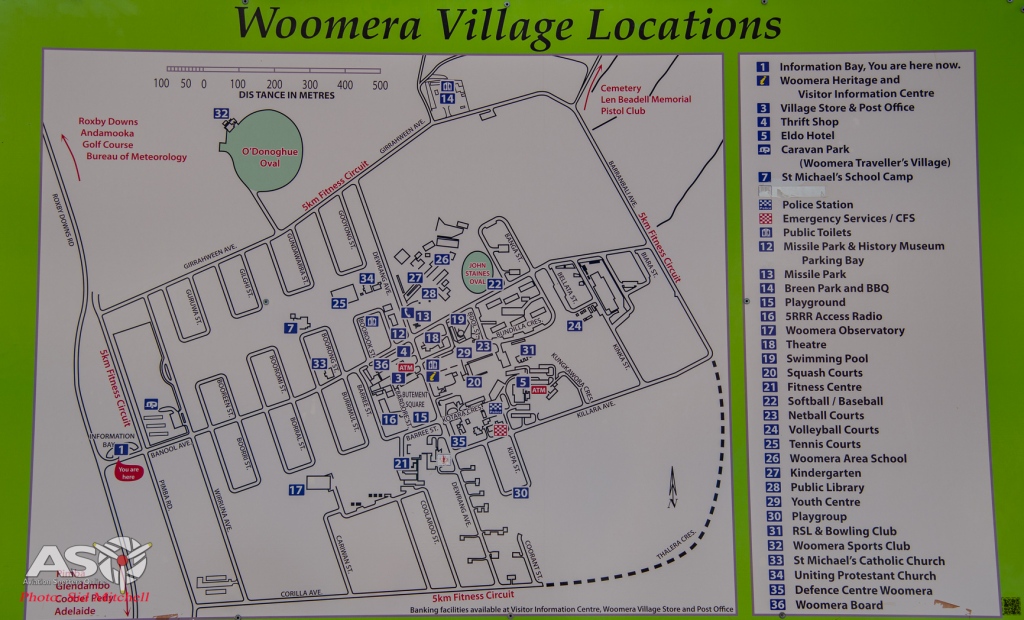
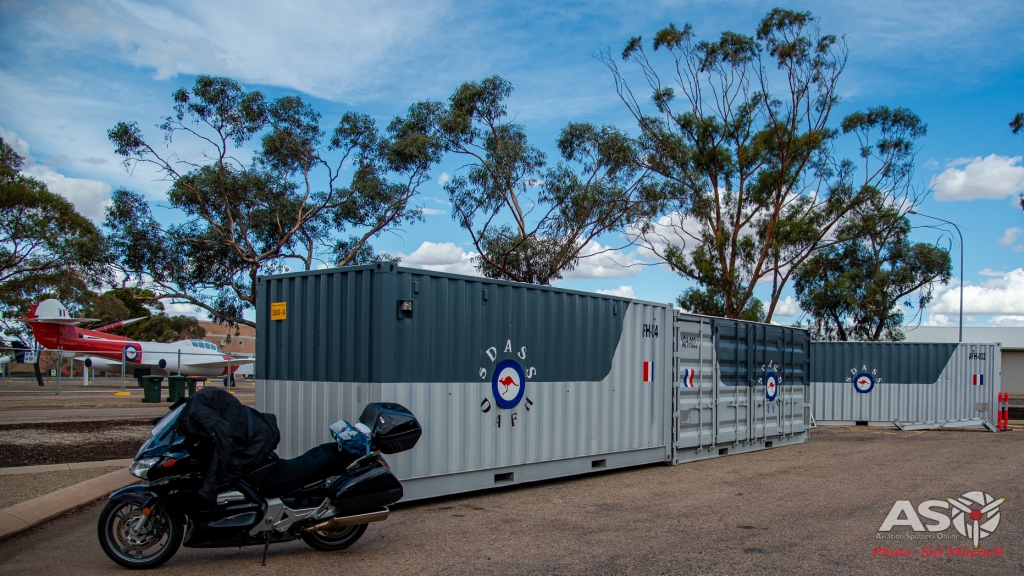
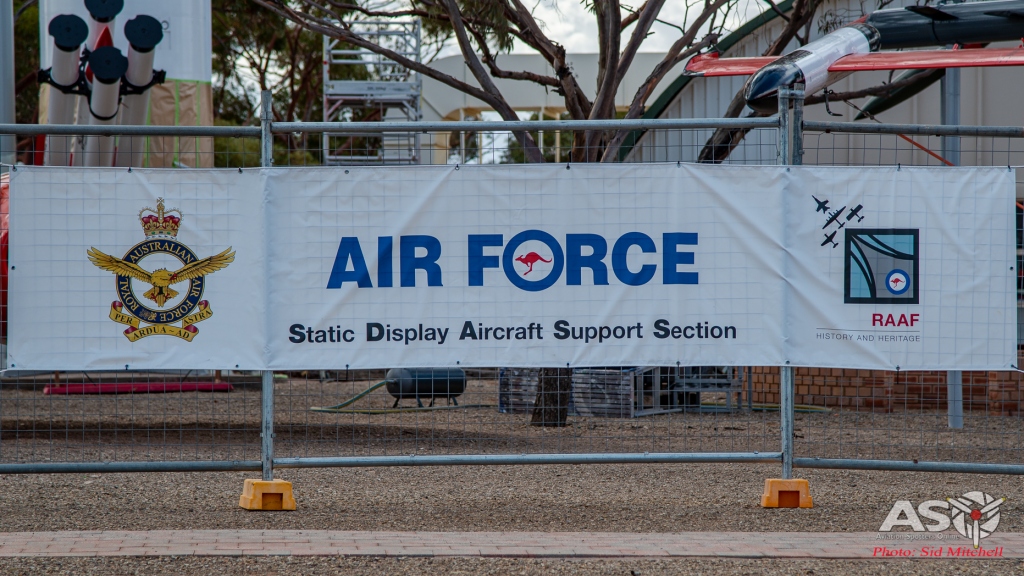
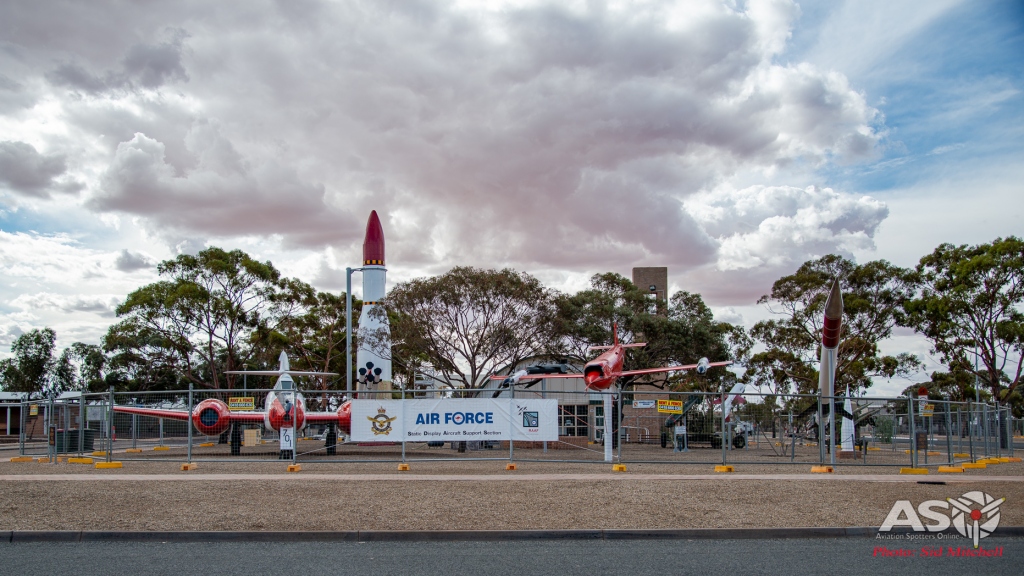
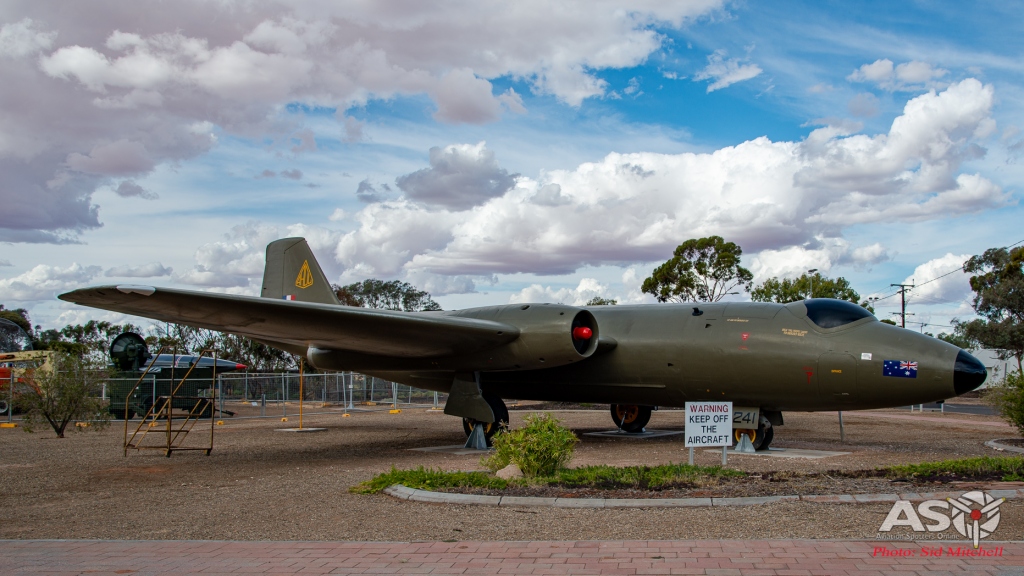
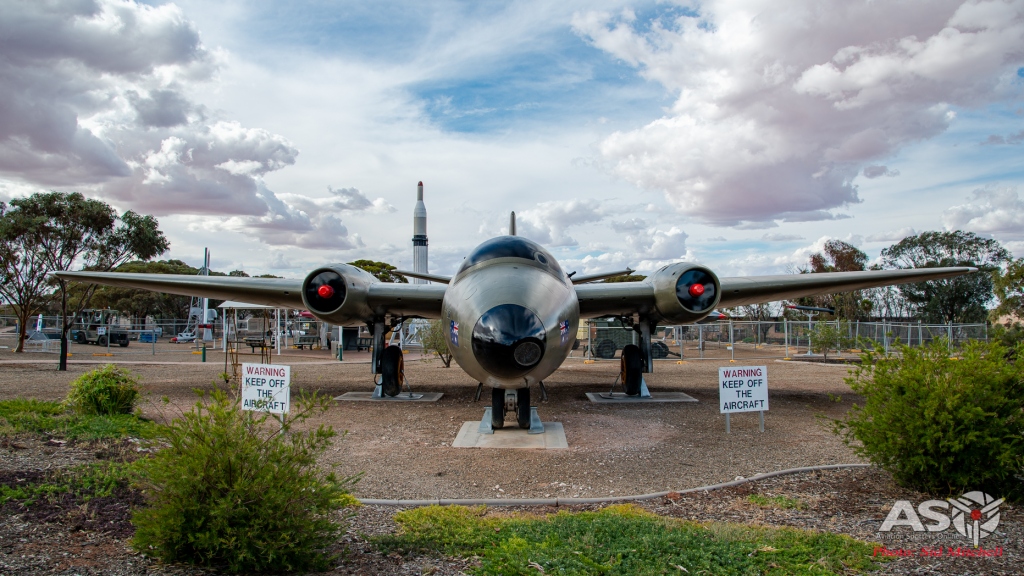
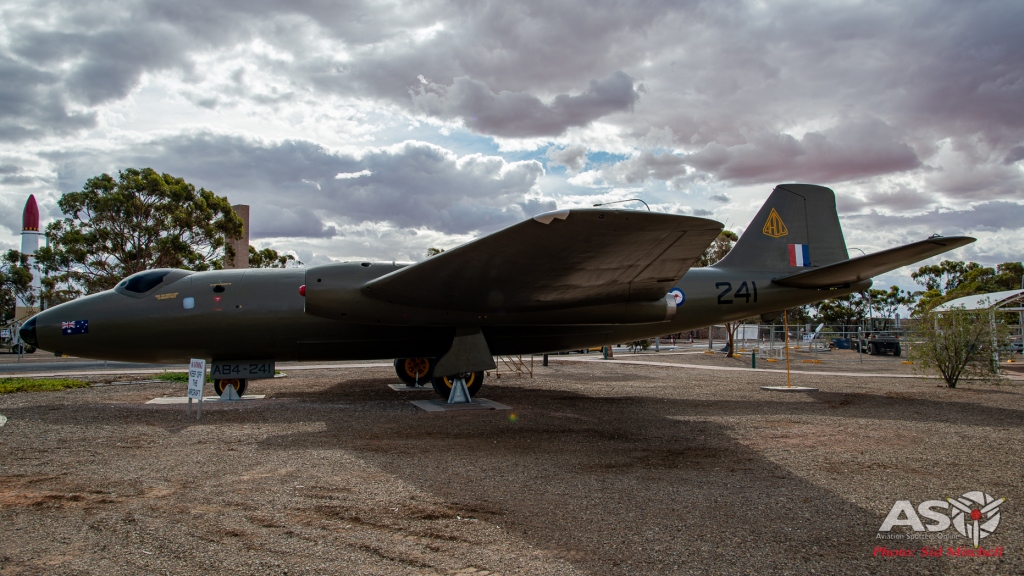
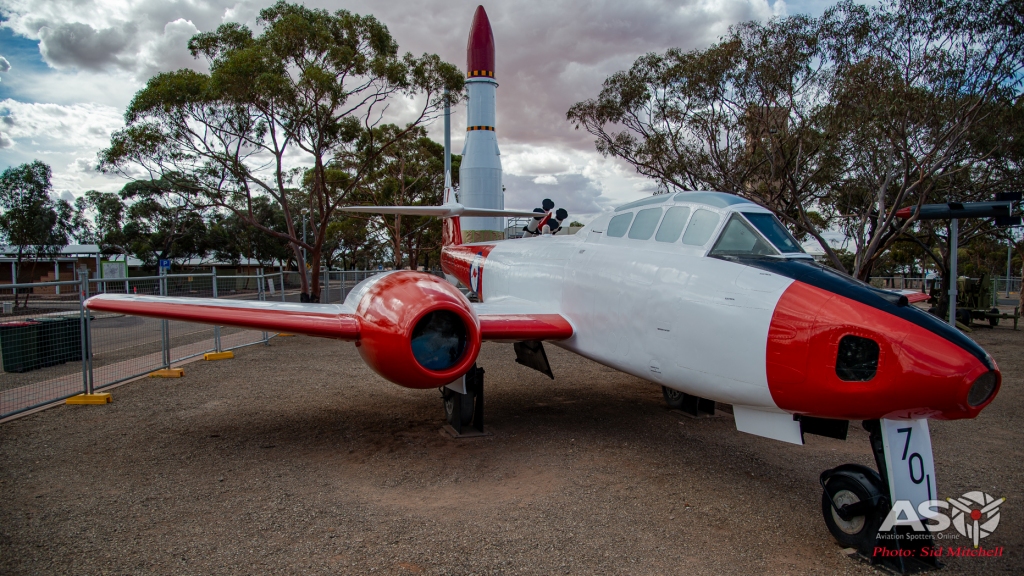
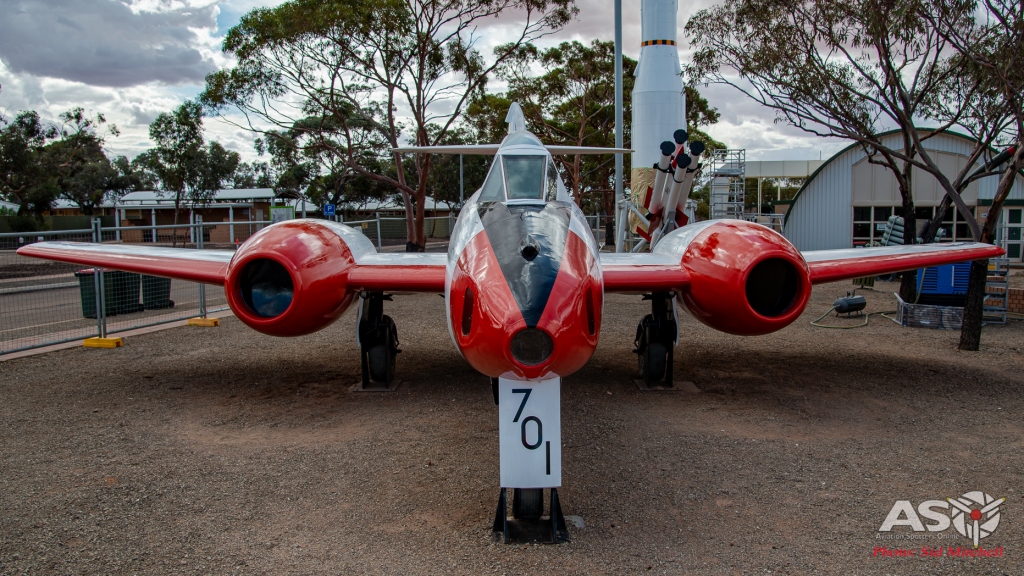
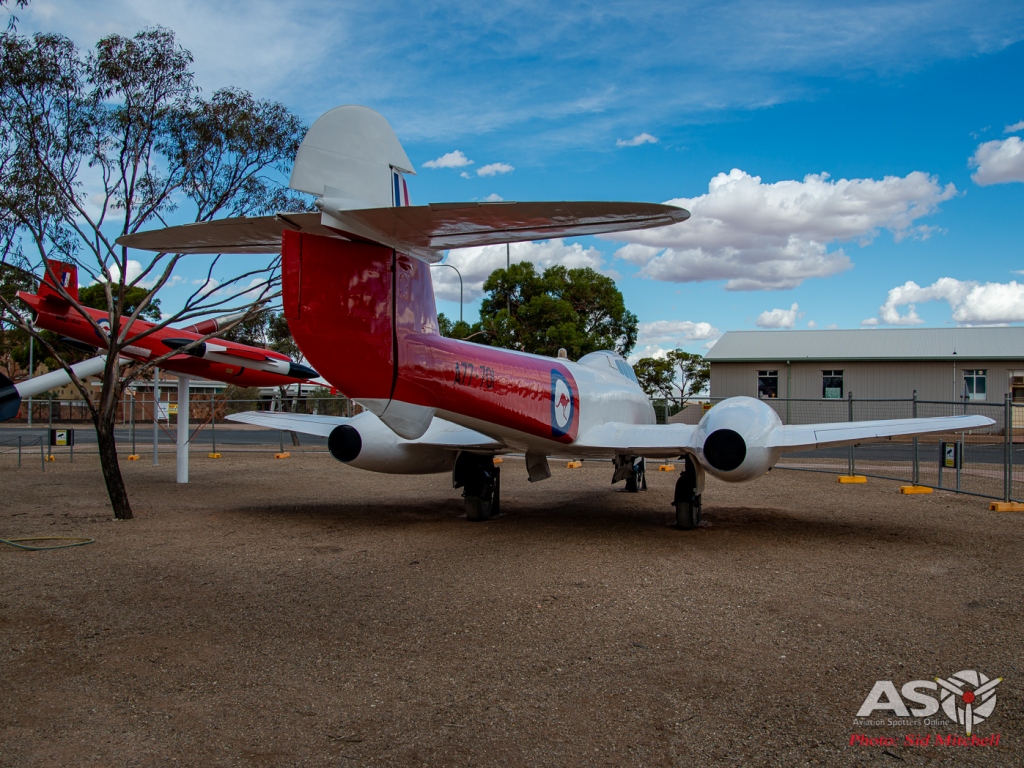
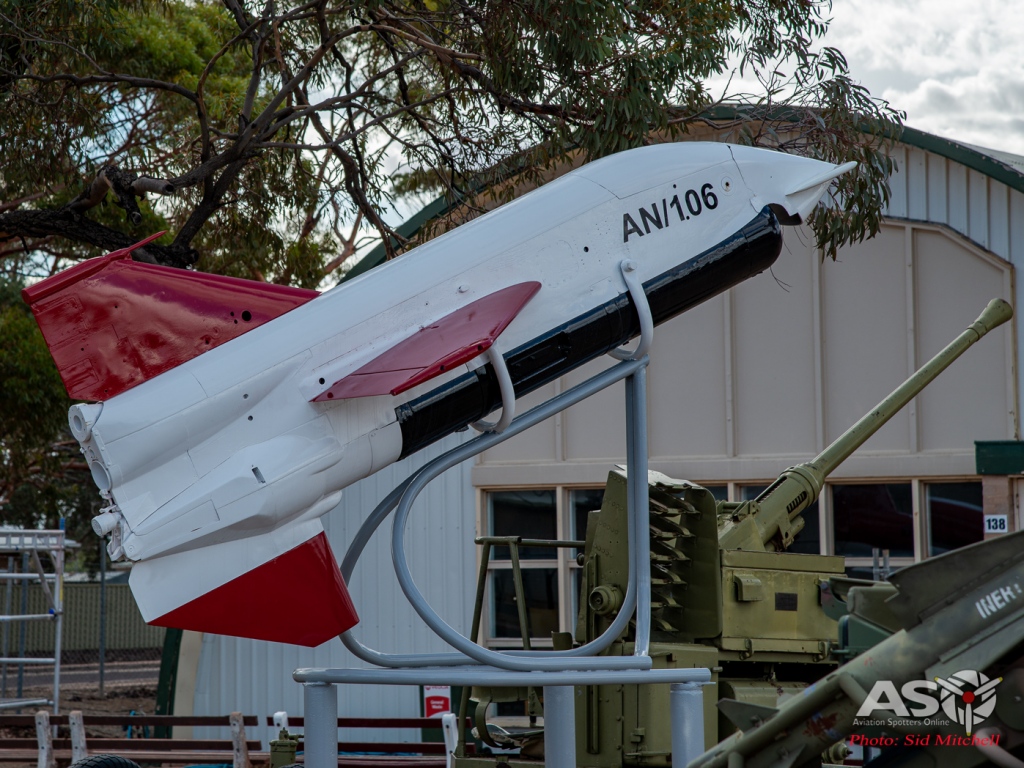
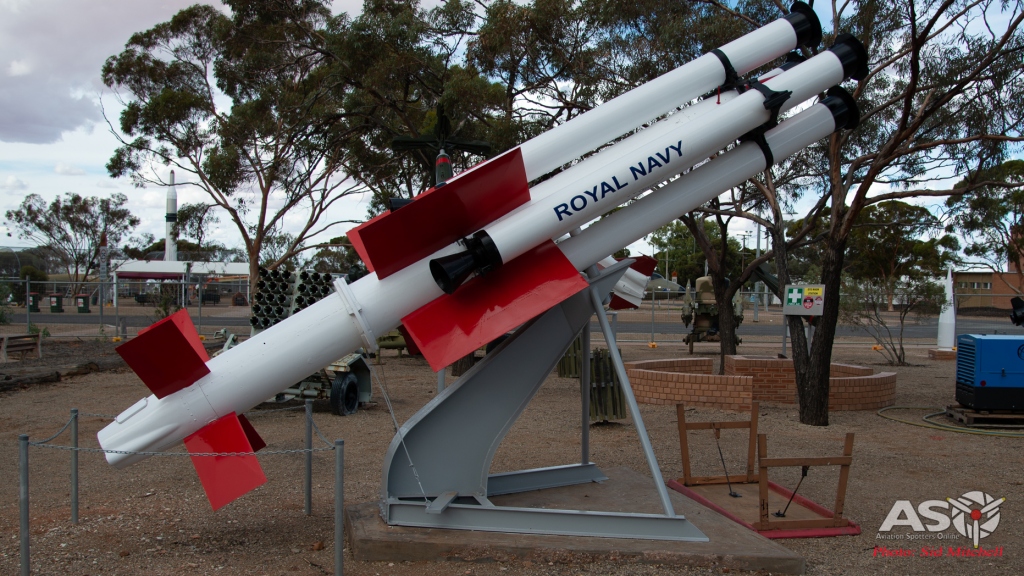
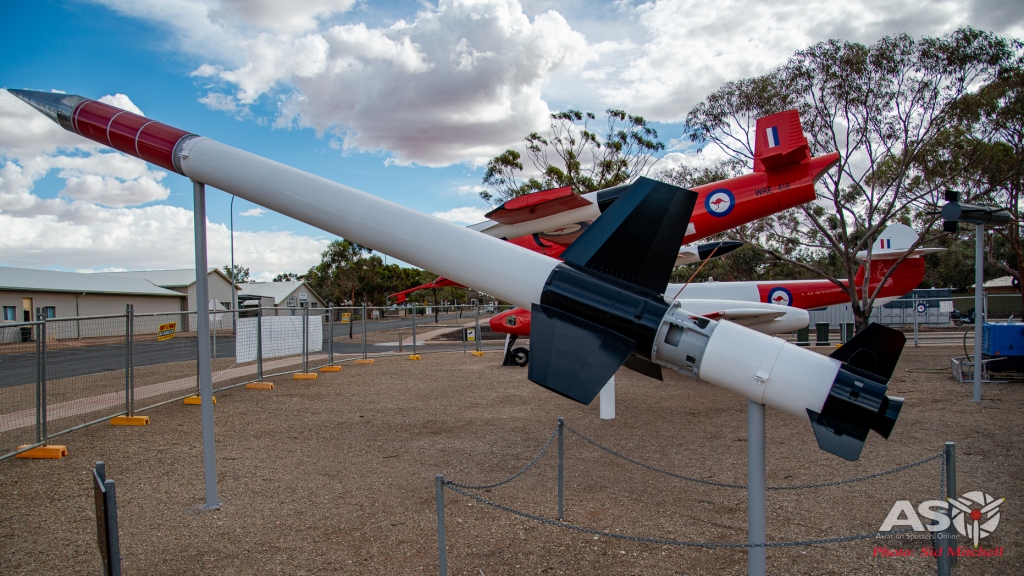
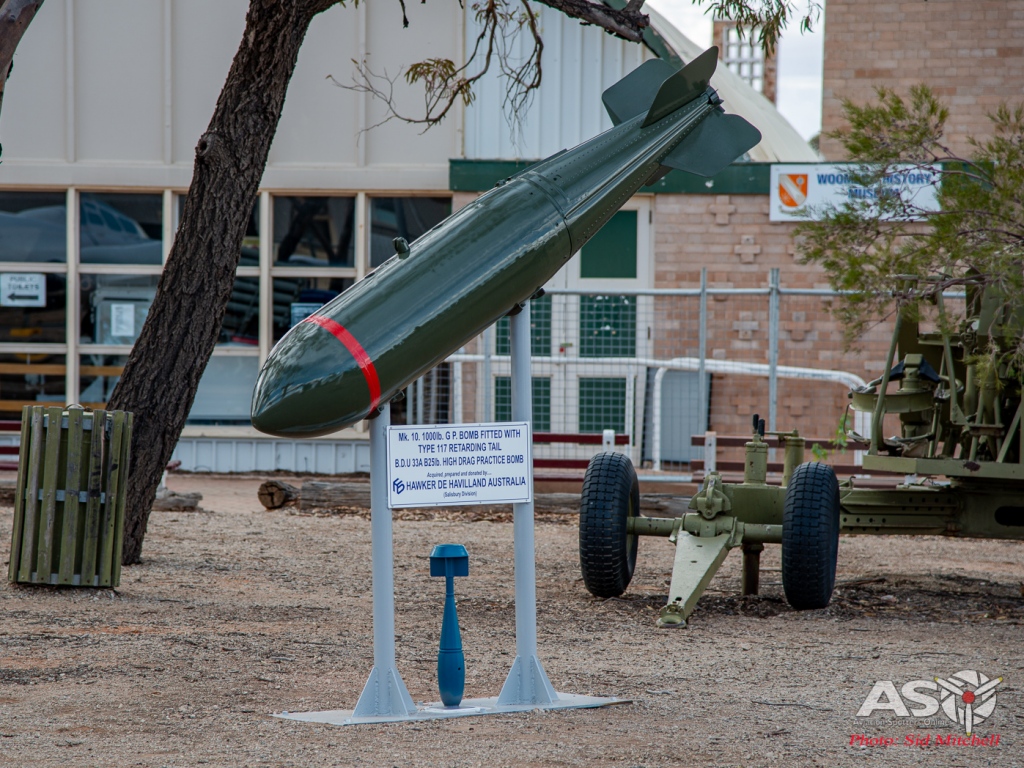
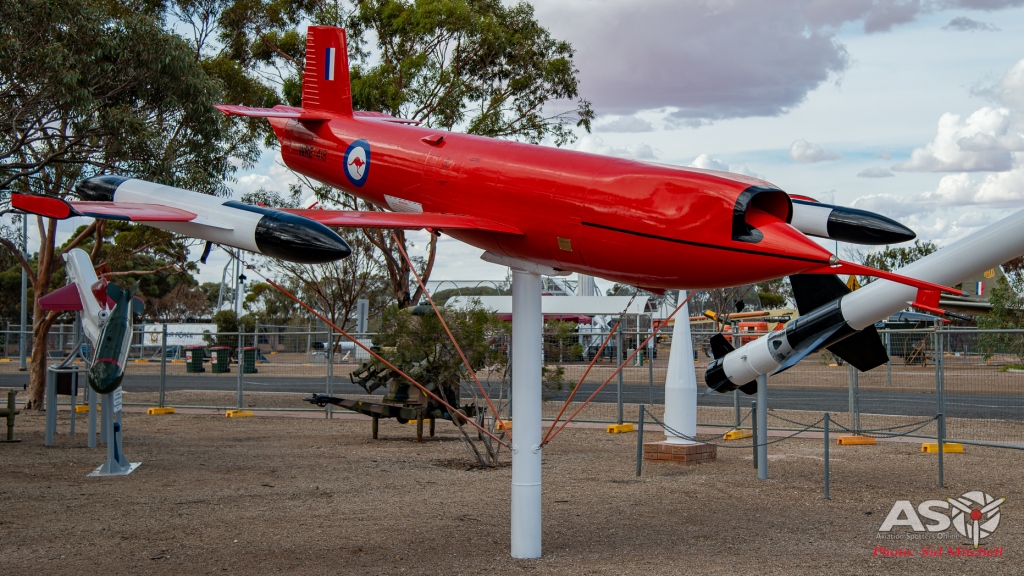
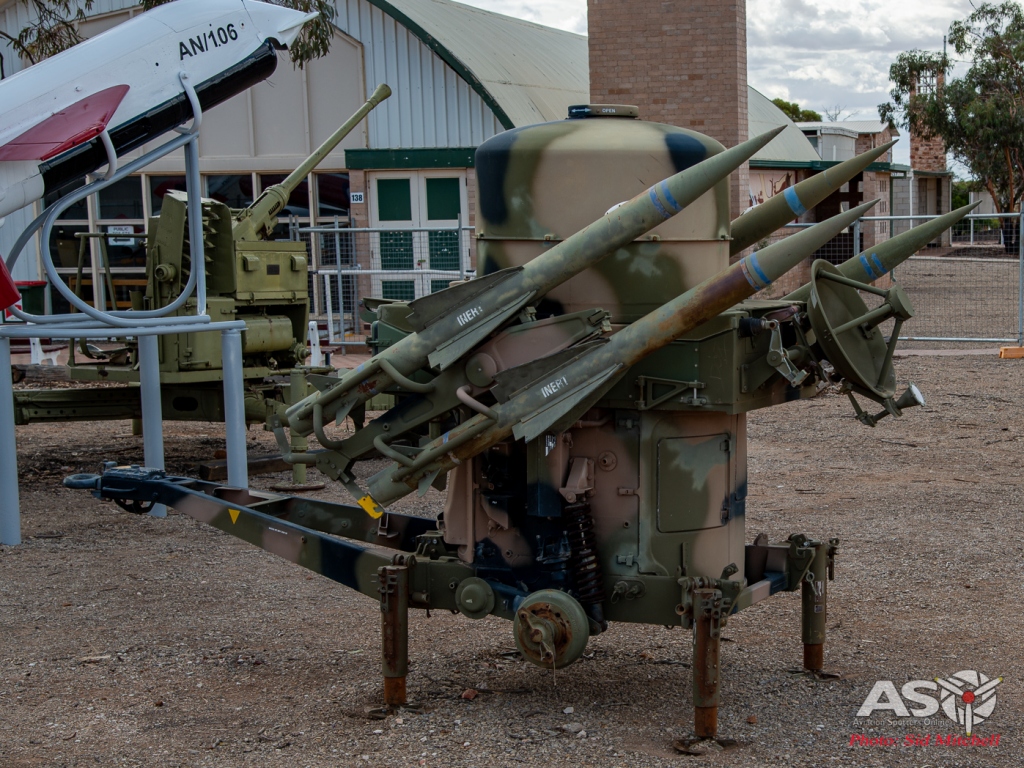
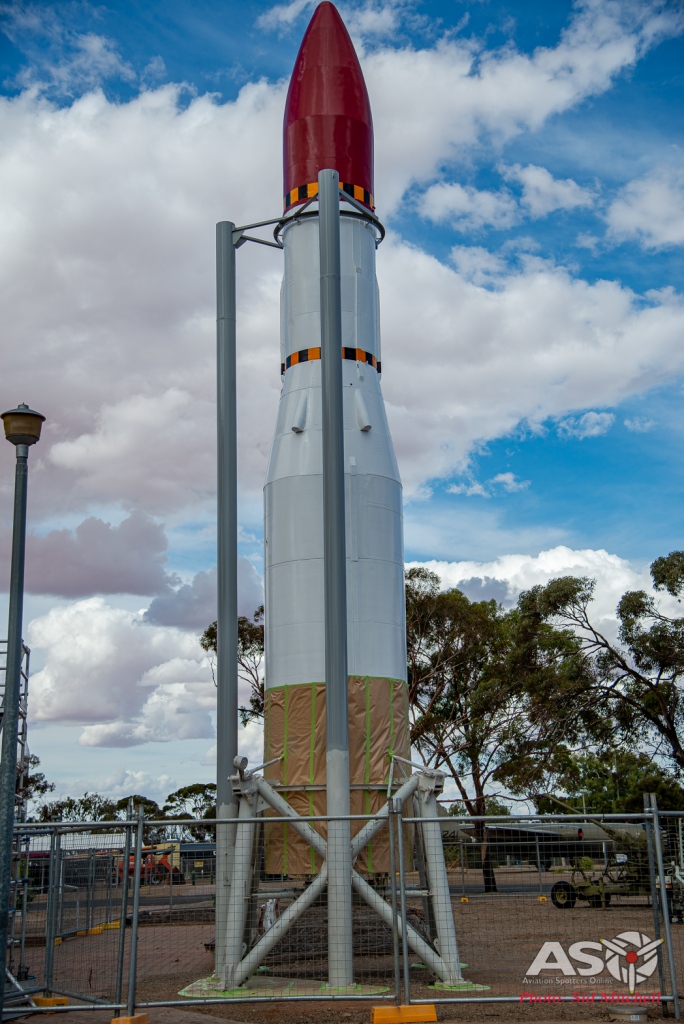
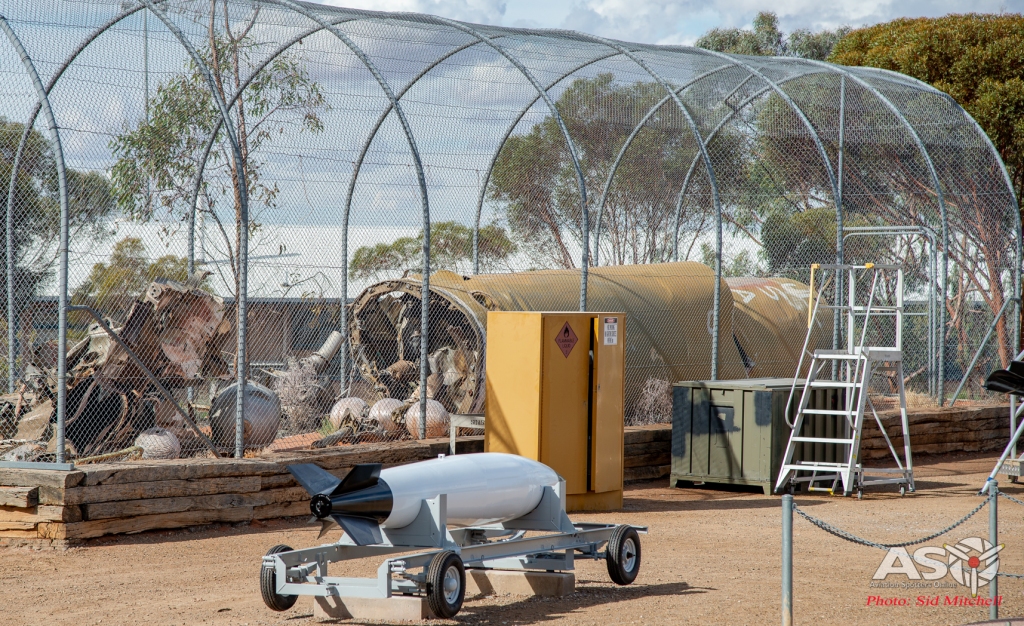
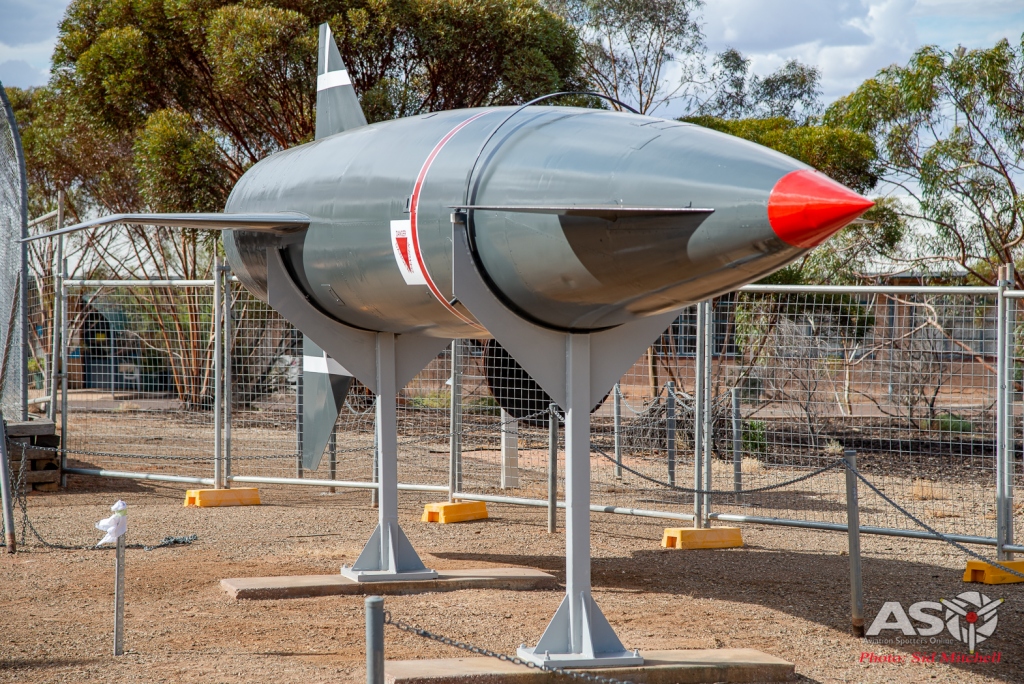
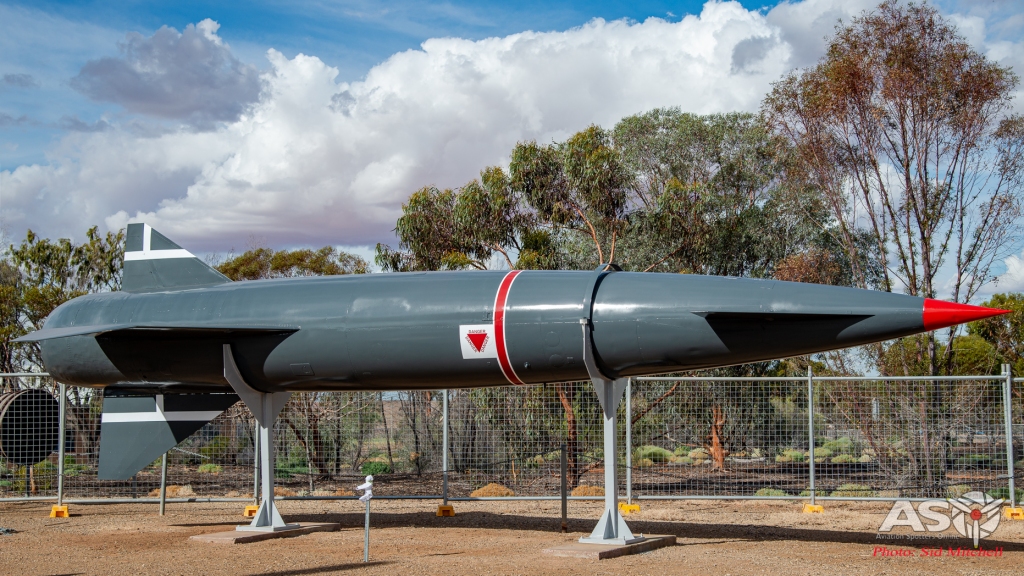
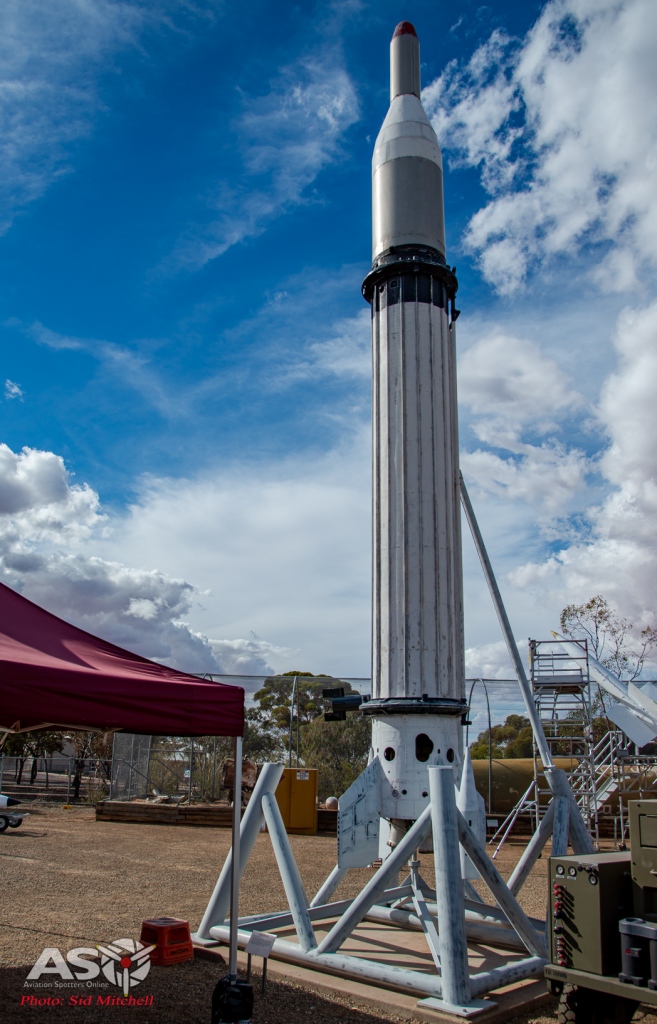
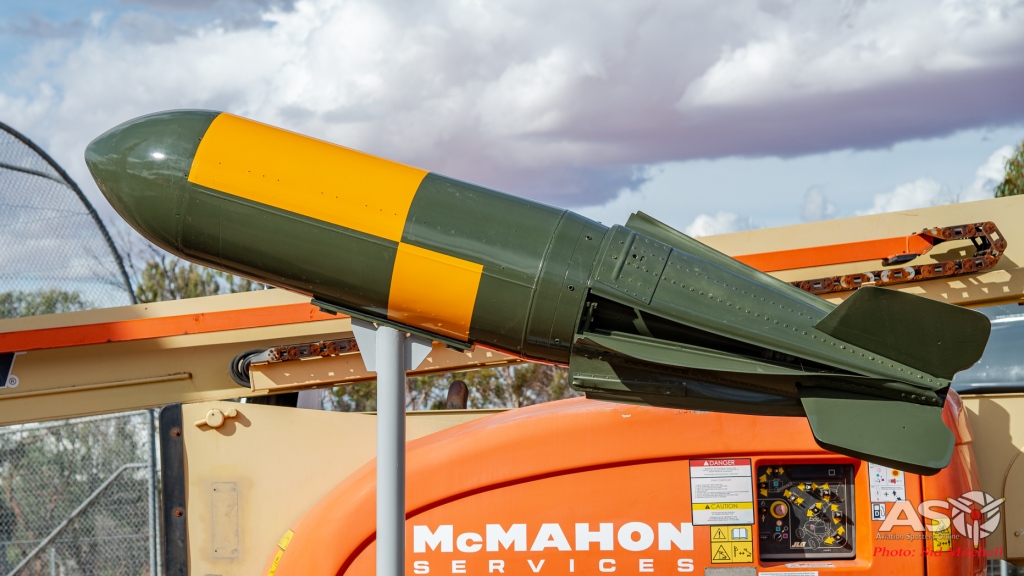
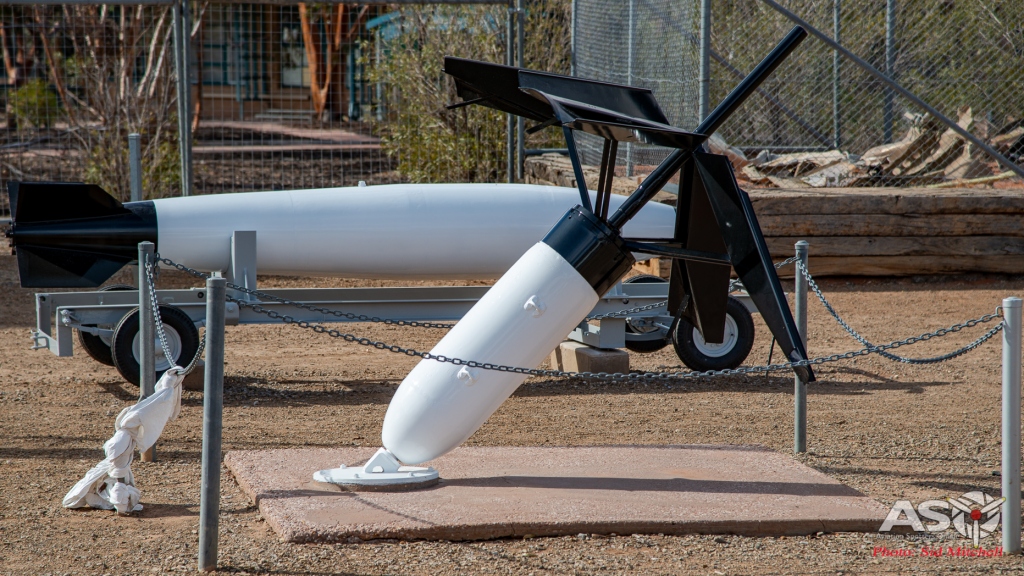
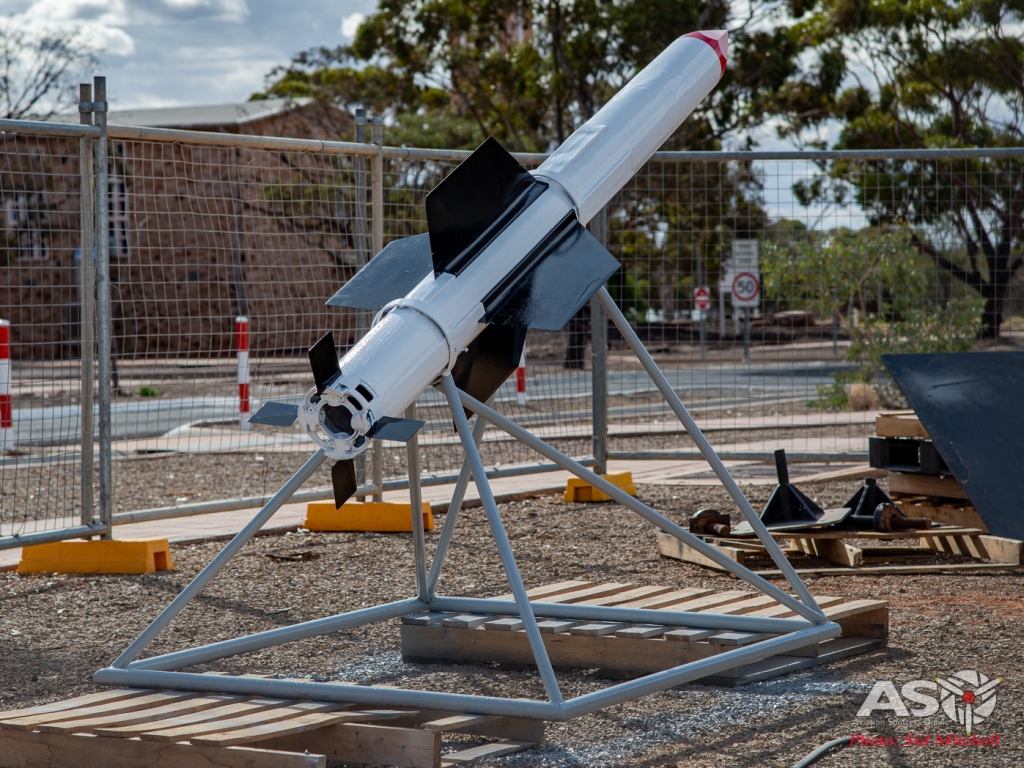
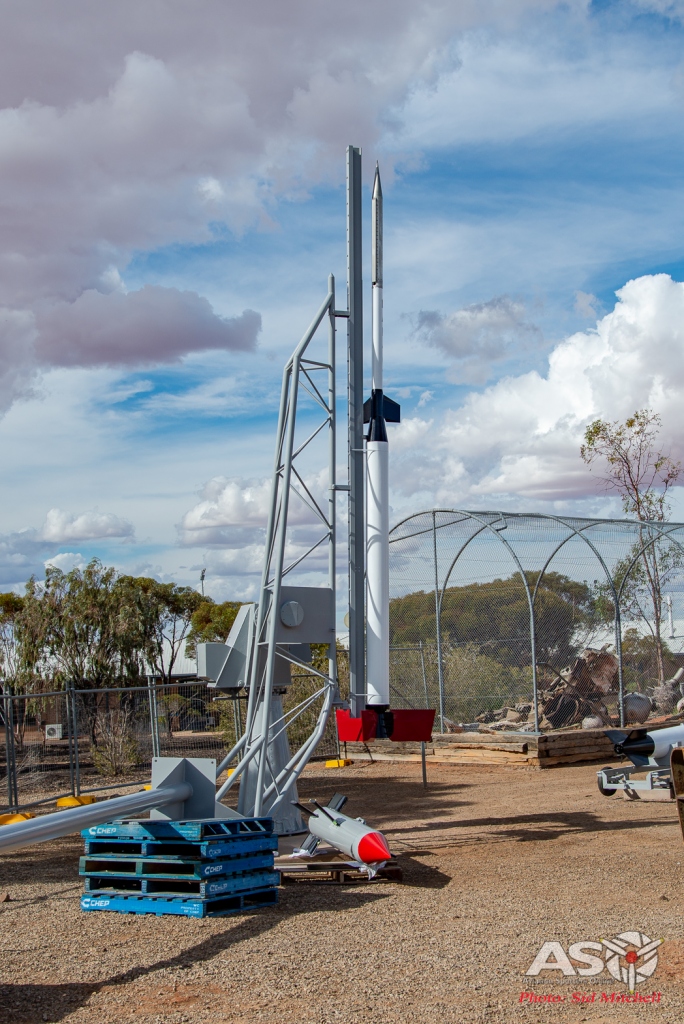
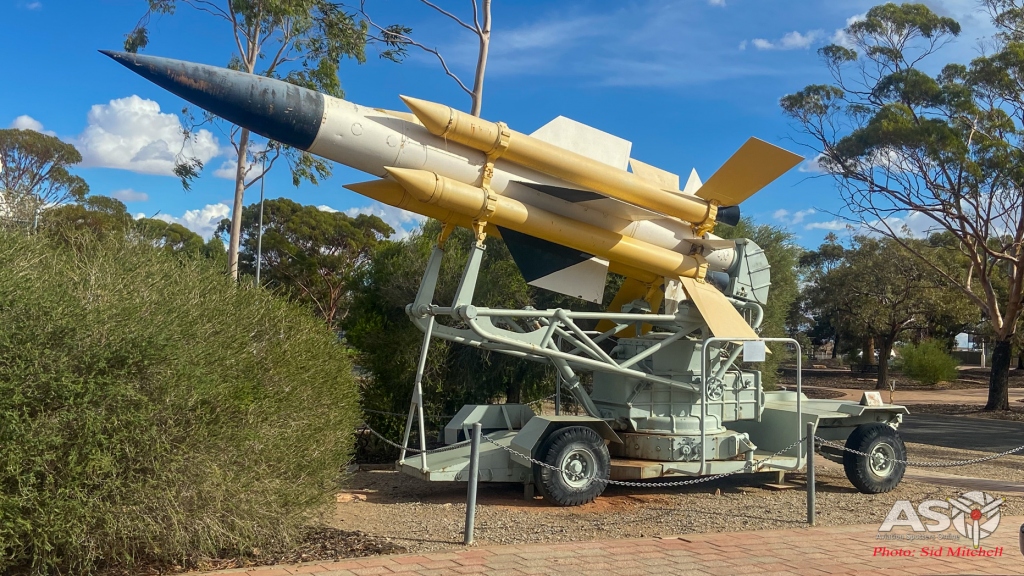
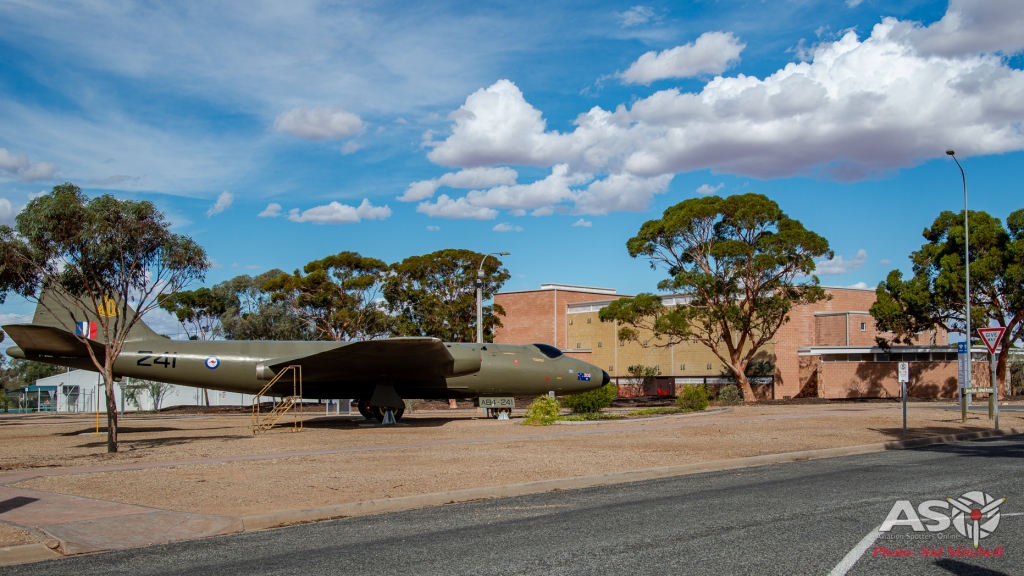
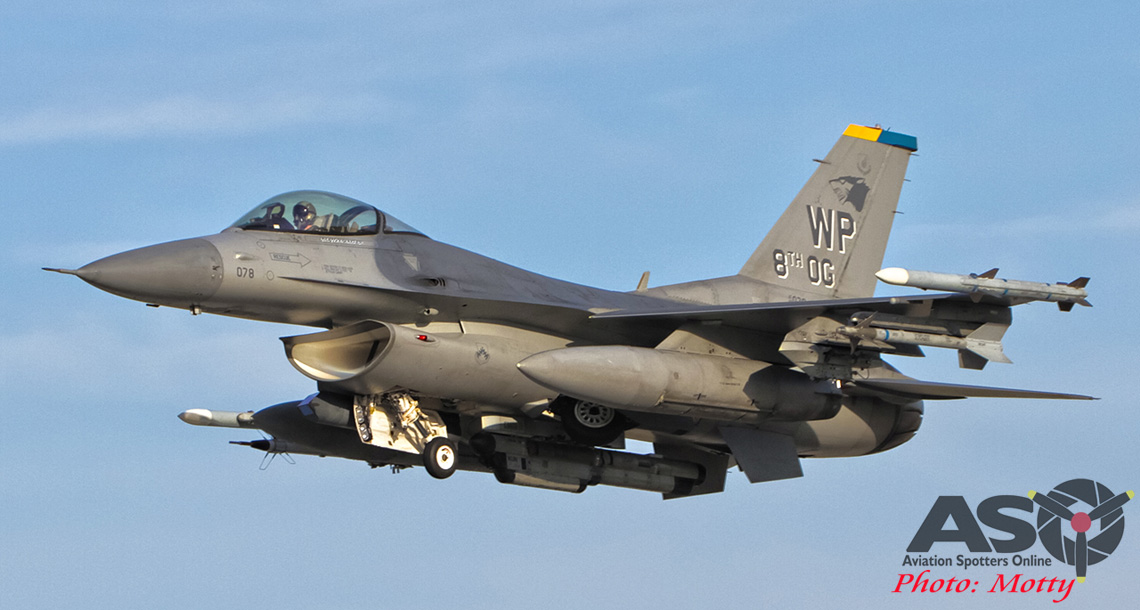

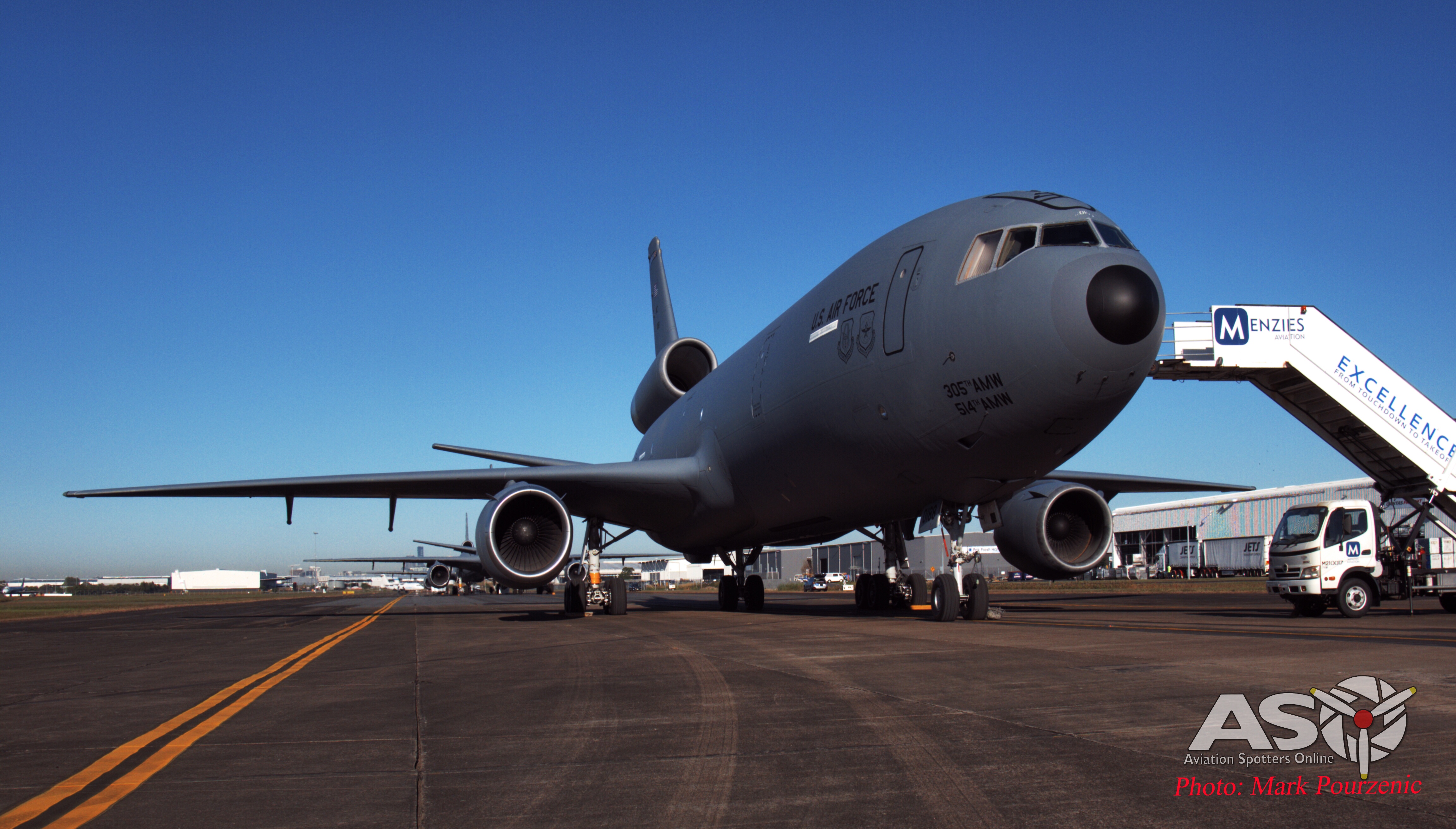
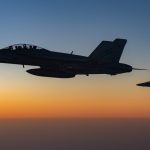
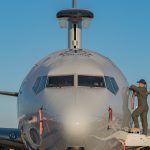
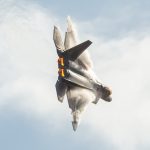
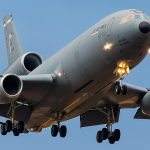
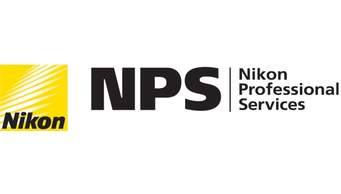
Great pics and commentary.
Thankyou Shane. A really fascinating place, every time I visit. Cheers, Sid
Excellent Woomera story. More restoration to be done and hopefully someone will get the celebrations sorted for the 75th anniversary — next April 😄😄😄
Cheers David, so much more to tell about the history of Woomera and the Range. I only scratched the surface. Glad to hear more will be happening in restoring this important place in our Defence and Scientific history. I do hope a 75th Celebration comes to fruition – many stories to be told. The Woomera fb page is interesting, funny and some great reading too.
Cht..Sid
World class images and information as always, thank you, David Gosling